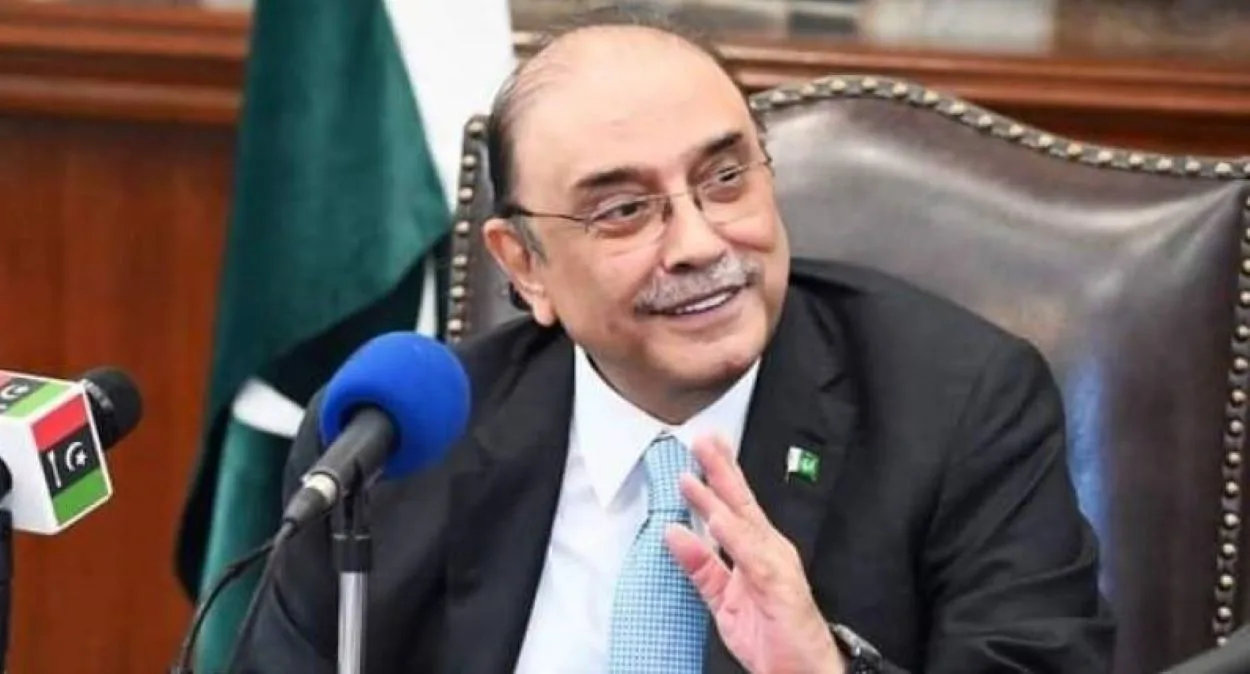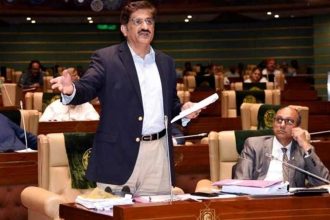Former Pakistani President Asif Ali Zardari voiced his concern about the outbound migration of Pakistani businessmen and their capital due to ‘insecurity.’ He emphasized that these entrepreneurs could earn a ‘lucrative’ return on investments made in Pakistan, far surpassing destinations like Dubai.
As the co-chairman of the ruling coalition party PPP, Zardari alluded to potential returns as high as “1000 percent.” He proposed that the business community secure a charter signed by each political party to address the economic crisis and stabilize the country’s financial standing.
This was Zardari’s third dialogue with the business community in less than a month, where he engaged with members of the All-Pakistan Textile Mills Association (Aptma). Alongside him were Syed Murtaza Mahmud, Minister for Industries and Production, and Saleem Mandviwalla, chairman of the Senate standing committee on finance and revenue.
Push for a Charter of Economy
Echoing his address to the Lahore Chamber of Commerce and Industry two weeks ago, Zardari once again called for a charter of the economy. This time, however, he urged businessmen to secure the signature of each political party on the charter, asserting that he held no reservations about their political affiliations. He highlighted a previous attempt to establish a national charter of the economy with the former prime minister, Imran Khan, who failed to comprehend the country’s critical issues. He reaffirmed the PPP’s readiness to sign such a charter.
Zardari assured the textile millers of providing a level-playing field for the industry. He expressed his wish for business representatives to assume cabinet roles in textile and finance, stating his preference for a technical person heading these ministries. He also pledged to address the business community’s concerns, believing that resolving these issues would lead to greater tax contributions. With the assistance of the textile industry, he envisioned an export worth $100 billion.
Economic Sectors and International Relations
Commenting on the renewed diplomatic relations between Saudi Arabia and Iran, Zardari noted that this development would benefit the region and enable Pakistan to procure cheap LPG from Tehran. He further pledged that a PPP-led government would ensure the completion of the Pak-Iran gas pipeline, support border trade, and facilitate a reduction in input costs for the textile industry by importing gas from Iran.
Zardari reminded the audience of his “trade not aid” mantra during his tenure as head of state in his discussions with the European Union. He encouraged Pakistani entrepreneurs to learn how to market their products effectively in international markets. Given Bangladesh’s GSP plus status and India’s strategy of tagging 70% of its textile products as “Made in Bangladesh” for European sale, Zardari called for similar strategic measures.
Lastly, Zardari advised that providing quality crop seeds would enhance the agricultural sector, promoting a stable rural economy.






